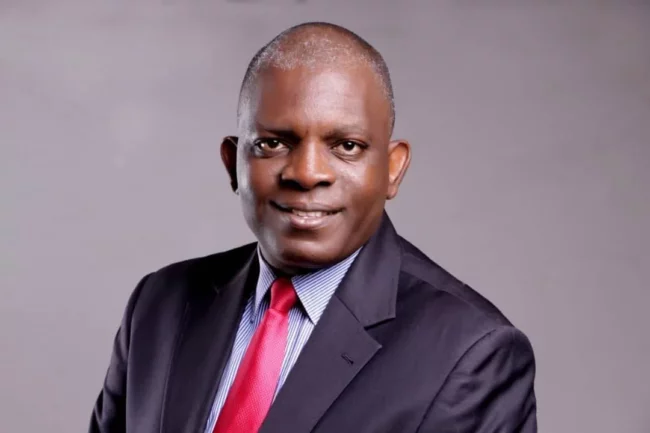Currently, the 1978 Nigerian Shipper’s Council Act Cap N133 Laws of the Federation of Nigeria (LFN) is undergoing repeal in both the House of Representatives and the Senate.
The bill, when signed into law by President Bola Tinubu, will change the Council’s name from the Nigerian Shippers’ Council (NSC) to the Nigeria Shipping and Port Economic Regulatory Agency (NISPERA).
The Act is undergoing review because it is believed that it is obsolete and the functions no longer align with modern trends and developments in the sector.
For instance, the 1978 Act created the Shippers’ Council to protect the interests of shippers’, importers and exporters in the country.
The role of the council, according to the 1978 Act, was one-sided, as other operators in the sector were vulnerable and left with no one to protect their interests.
However, to protect the interest of other stakeholders, the federal government, on March 2nd, 2015, gazetted the Council as Port economic regulator after ex-President Goodluck Jonathan signed an executive order designating the Council as Port Economic Regulator.
According to the Gazette, the Council, as Port economic regulator, is empowered to regulate tariffs, rates, charges and other economic services at the ports.
But, despite this gazette, the Council’s new role was rejected by stakeholders and operators who feared that the it would be partial in discharging its duties as economic regulator due to the stipulated act of the council.
They claimed that the traditional role of the Council has placed a moral burden on the agency to act as an impartial and unbiased umpire in the process of dispute resolution between the service providers and the consumers of their service.
They further argued that the Council was primarily established to protect the interests of the consumers of shipping services provided by terminal operators and shipping companies.
However, to redefine its role, the council has initiated a process to repeal the 1978 Act to Shipping and Port Economic Regulatory Agency Bill 2023.
The Shipping and Port Economic Regulatory Agency Bill 2023 will address the existing loopholes in governing the maritime sector.
The bill will further provide the necessary framework for the regulation of the maritime sector and will help to promote efficiency, transparency, and competitiveness.
Speaking on the bill, the executive secretary of NSC, Dr Pius Akutah, said the bill when signed into law, will promote efficiency in the sector.
According to Dr Akutah, the bill which he said is currently going through intense cleaning in the National Assembly, will reposition the sector for greater profitability.
“The new law that is coming on board, is going to effectively chart a new course for the sector and promote efficiency that we have all been yearning for. The bill has been passed by the two chambers of the National Assembly, the House of Representatives and the Senate. So it’s awaiting the assent of Mr. President. But at the moment, the National Assembly is cleaning it.
“The process of law-making is not just the passage of the bill by both chambers of the Assembly. It also has to go through a process of cleaning, which is ongoing right now,” Dr Akutah stated.
Akutah said the bill will aim to enhance regulatory authority, enforce compliance, regulate charges, improve efficiency, eliminate exploitative practices, and bring about fairer trade conditions and fast dispute resolution.
The bill will also boost maritime competitiveness based on global best practices and position Nigeria as a regional hub for shipping.
“This legislation aims to strengthen the regulatory framework for the maritime industry, promote economic growth, and enhance the ease of doing business in Nigerian ports,” the Shippers’ Council boss noted.
However, due to the strategic significance of the bill to the economy, the National Assembly has shown support for quick actualisation of the bill through early passage.
Speaking on the bill and its importance to the nation’s economy, the speaker, House of Representatives Tajudeen Abass, said the bill, when signed into law, would change the mandate of the Council from its original role as a protector of shippers’ interests to Port economic regulator.
The speaker argued that the bill is critical to ensuring that the Council performs its expanded role effectively and creditably.
“To effectively fulfil its expanded mandate as the Port Economic Regulator, it is imperative, therefore, that the necessary legislative bill is passed. This bill will formally empower the Council, providing it with the authority and tools required to oversee and manage the economic activities within Nigerian ports, ensuring efficiency, fairness, and competitiveness across the sector,” he said.
Speaking on the significance of the bill to the sector and the nation’s economy, the National Association of Government Approved Freight Forwarders (NAGAFF), said Port operators are currently having a field day stifling economic/port operations to their economic advantages.
The association, however, believed that signing the bill into law by President Bola Tinubu would end post-concession challenges and put the sector on the trajectory of growth.
“The efforts of the sponsors of the Bill to repeal the Nigerian Shipper’s Council Act (Cap N133, LFN,2004) and enact the Nigeria Shipping and Port Economic Regulatory Agency (NISPERA) Bill and Related Matters is commendable, the President of NAGAFF, Tochukwu Ezizi stated.
Speaking further, “Our commendation is based on the fact that the post-concession era of Nigerian ports has suffered so much topsy-turvy economic strangulation given the fact that there has not been an Economic Regulatory Agency. Consequently, port concessionaires have been having a field day over the years, stifling economic/port operations to their economic advantages.”
“The post-concession challenges of Nigeria’s ports underscore the importance of establishing a dedicated regulatory agency to address issues and ensure fair and efficient operations within the ports and maritime sector.”
“We are optimistic that by repealing the existing legislation and enacting a new
bill to establish the Nigeria Shipping and Port Economic Regulatory Agency, there is an enormous opportunity to address longstanding issues and enhance oversight of port activities.”
“The support by NAGAFF and the larger freight forwarding community for this legislative initiative is an indication of our belief that the establishment of the regulatory agency will help address economic strangulation and promote fair competition within the ports.
“We anticipate that the agency will play a crucial role in regulating the activities of port concessionaires, ensuring compliance with standards and fostering a conducive environment for economic growth and development within the port sector.
The NAGAFF president, therefore, endorsed the bill as a mark of commitment to advocating for measures that enhance transparency, efficiency, and competitiveness within Nigerian ports.
He argued further that the bill will also benefit stakeholders across the freight forwarding industry and the broader economy.
“However, our submission today will not be complete without highlighting the key concerns of over 100,000 members of the Freight Forwarding industry that we represent nationwide.
“Freight forwarders play a crucial role in facilitating international trade by managing the logistics of transporting goods from one place to another. We are intermediaries between shippers, carriers,
Customs and other government agencies coordinate various aspects of the transportation process. As the central player in the supply chain industry, Freight Forwarders contribute significantly to the nation’s GDP by collecting revenue from shippers and remitting the same to the Nigeria Customs Service (NCS) in the form of duties, taxes, and levies on import and export trade. As of today, records have shown that a cumulative of over N14 quadrillion was collected by Freight Forwarders and remitted to the Federal Government through NCS since 1989.”
“So, the Freight Forwarders’ position in the port economic configuration is strategic. The Freight Forwarders are the only stakeholders in the supply chain that understand the policies, processes, and practices of each institution, and as such our concerns about this bill should not be swept under the carpet, our concerns must be respected and serious considerations must be accorded to it during the technical review sessions afterwards.”
Also speaking, the Chief Executive Officer of the Centre for the Promotion of Private Enterprises(CPPE), Dr Muda Yusuf, sought stakeholders’ support and cooperation for the Council to enable it to perform its regulatory role in the maritime industry.
Dr Yusuf said the industry needs a strong regulator that will protect the consumers of the services of the operators in the industry.
He claimed that the maritime industry is dominated by monopolists who prey on the hapless services consumers in the sector, hence the need for strong regulators who will protect their economic interests.
He said that a strong Nigerian Shippers’ Council as a regulator will be to the advantage of indigenous operators whom he said are losing their jobs daily to foreigners.
” We have to support the Nigerian Shippers’ Council to provide effective regulation in the maritime industry. That is the way the council can protect the consumers.”
The CPPE boss noted with regret that jobs are being taken away from indigenous operators who are made to be spectators in their own country’s economy.
He, therefore, advocated for policies that would protect the hapless indigenous operators who are at the mercy of their foreign competitors.
“Jobs are being taken away in the sector.
There must be policies to protect the indigenous people so that their jobs will not be taken away,” Dr Yusuf stated.
He wondered how foreign could be allowed to come to Nigeria to do freight forwarding jobs
” Foreigners come to Nigeria to engage in the job of clearing of goods, a job which should be an exclusive preserve of Nigerians.”
He said that as much as he is not averse to foreign investors, they should not be allowed to do jobs which the Indigenous people have competence for.”
Rather, he advocated that such foreigners should go to areas where Nigerians lack competence.
He urged the government to make an intentional intervention to halt the galloping inflation, noting there should be a limit to liberalisation.
” Advanced countries like the United States of America are still protecting their indigenous people from unfair competition. For instance, the US is considering a hike in tariff on Chinese goods in the country to protect jobs for indigenous people.”





